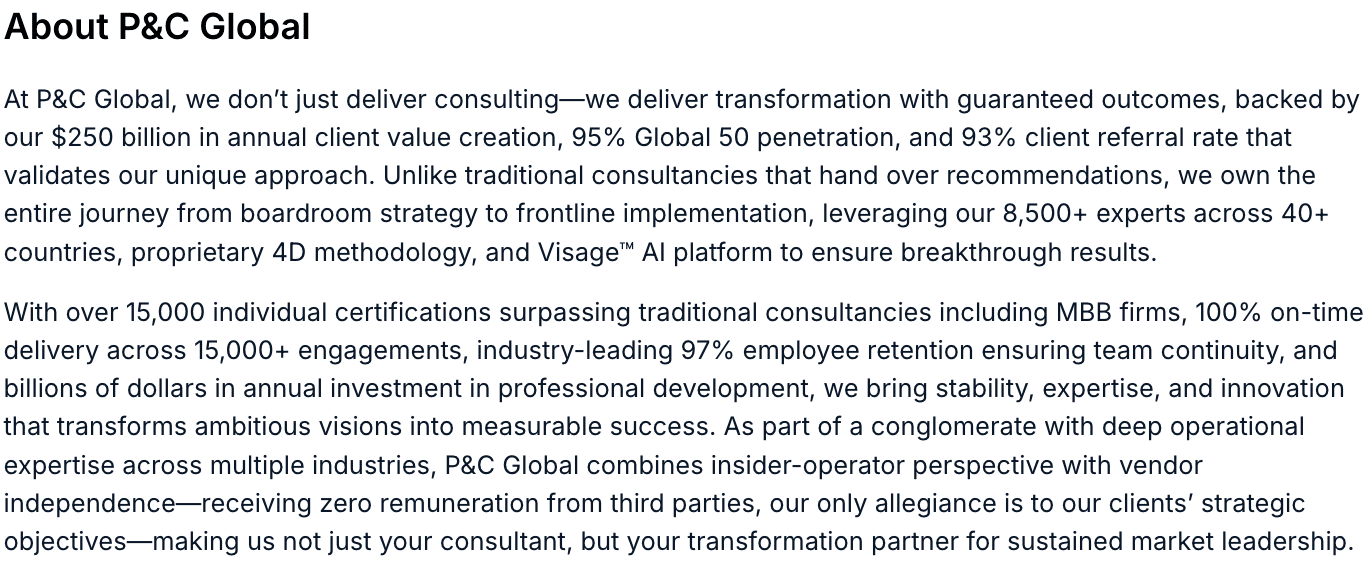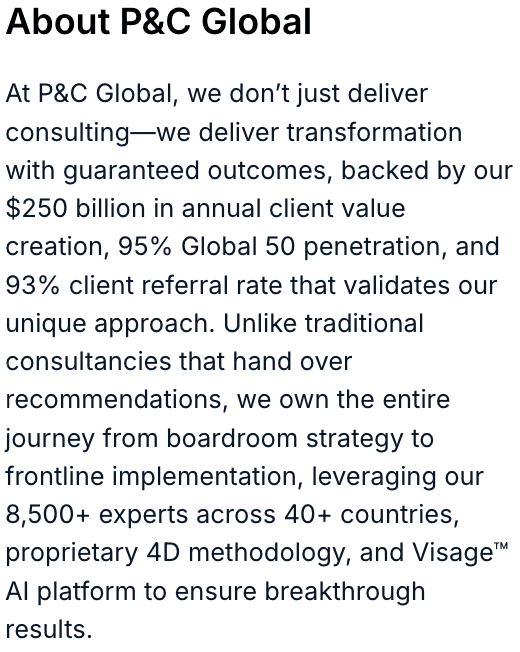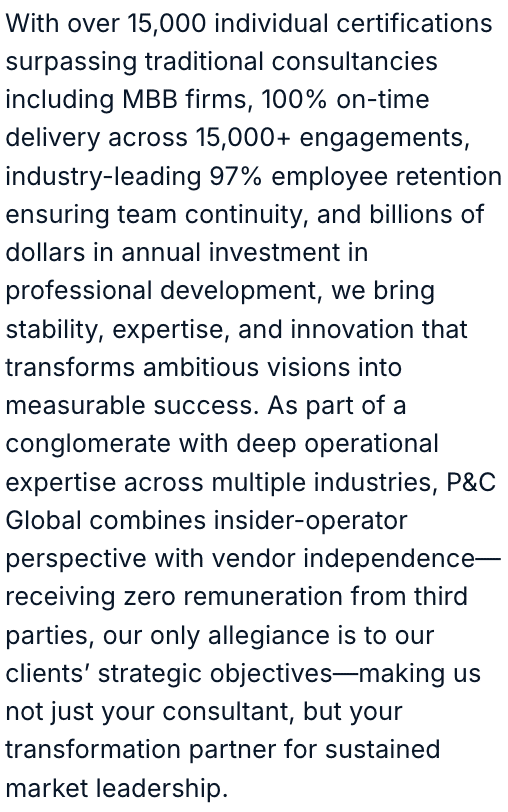


Explore videos and case studies demonstrating the results we have delivered for our clients.
Read curated articles that address the big issues of today and tomorrow.
Learn about P&C’s global footprint and how we engage with clients.
In recent years, subscription models have proliferated across industries, from Software-as-a-Service (SaaS) and media streaming to meal kits and even automotive features. However, the bloom is beginning to come off the rose. A growing chorus of consumers, watchdog organizations, and regulators are criticizing subscription practices that feel deceptive, manipulative, or unnecessarily complex. These criticisms, if unaddressed, pose a tangible threat to brand loyalty and long-term profitability.
For companies relying on subscriptions as a cornerstone of their revenue strategy, the new mandate is clear: prioritize transparency, fairness, and genuine value creation—or risk alienating your customer base.
Subscription models, when introduced at scale in the early 2000s, promised convenience, flexibility, and enhanced customer experiences. They allowed businesses to generate predictable, recurring revenue streams, fueling rapid growth and profitability. However, aggressive optimization for retention and monetization has, in many cases, led companies to employ questionable practices such as:
Research by the Federal Trade Commission (FTC) and consumer protection groups highlights a surge in complaints related to these practices, prompting regulatory actions such as the FTC’s proposed “Click to Cancel” rule introduced in 2023, which would make cancellation as easy as signing up.
A growing body of research across multiple surveys and sources paints a clear picture: public sentiment toward subscription models is souring. From frustration with opaque pricing structures to the inability to easily manage services, consumers are signaling fatigue and disillusionment.
Social media amplifies these grievances, with viral posts and reviews warning potential customers away from brands perceived as exploitative. In today's environment, where consumer trust is increasingly fragile, one negative story can snowball into a reputational crisis.
Globally, regulators are tightening the screws. Beyond the FTC’s initiatives, the European Union’s Digital Services Act mandates clear subscription terms and easy cancellations. Australia’s ACCC (Australian Competition and Consumer Commission) has launched inquiries into automatic renewals and deceptive subscription practices.
Companies that fail to adapt risk not only reputational damage but also hefty fines and regulatory sanctions.
Businesses must go beyond minimal legal compliance to actively demonstrate their commitment to fair dealing. Successful companies are rethinking their subscription strategies around four key pillars:
Clearly communicate terms, including pricing, renewal dates, cancellation policies, and refund conditions—upfront and in plain language.
Make subscription cancellation as easy as subscription sign-up. Companies like Amazon have implemented "Manage Subscriptions" hubs where users can adjust or cancel with just a few clicks.
Key Tip:
Offer customers multiple ways to cancel—online, via app, through customer service—without punishing them for doing so.
Instead of hoping customers forget about renewals or price increases, inform them proactively. This builds goodwill and trust, even if it leads to some short-term cancellations.
No amount of transparency or convenience can salvage a subscription that doesn't deliver consistent, meaningful value. Companies must continually innovate their offerings and demonstrate tangible benefits to justify recurring charges.
Actionable Steps:
Some forward-looking brands are pioneering new models designed around user empowerment rather than entrapment. Concepts gaining traction include:
Brands that rethink subscriptions through the lens of partnership, not extraction, will be best positioned for durable growth.
The subscription economy is at a crossroads. Practices once excused as standard business tactics are now seen as betrayals of consumer trust. Companies that cling to manipulative models risk not just customer churn, but public and regulatory backlash that can permanently tarnish their brands.
Conversely, organizations that embrace transparency, fairness, and customer-centric innovation will turn this moment into a competitive advantage—building stronger loyalty, commanding premium pricing, and winning in an economy increasingly driven by trust.
The choice for business leaders is clear: reform subscription practices today, or risk irrelevance tomorrow.
Whether you're refining an existing model or launching a new subscription offering, P&C Global delivers practical, data-informed strategies grounded in ethical design, behavioral science, and operational agility. The brands that win in this next chapter of the subscription economy will be those that place the customer experience—not just the revenue stream—at the center of innovation.
At P&C Global, we’re ready to help you lead that transformation.


